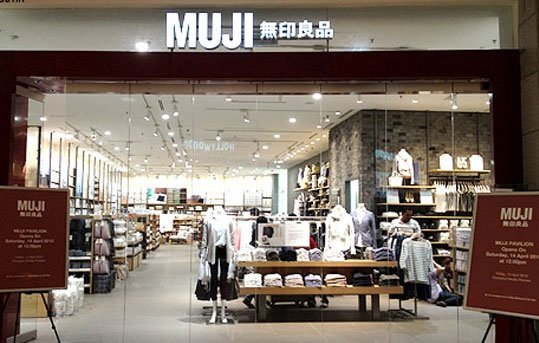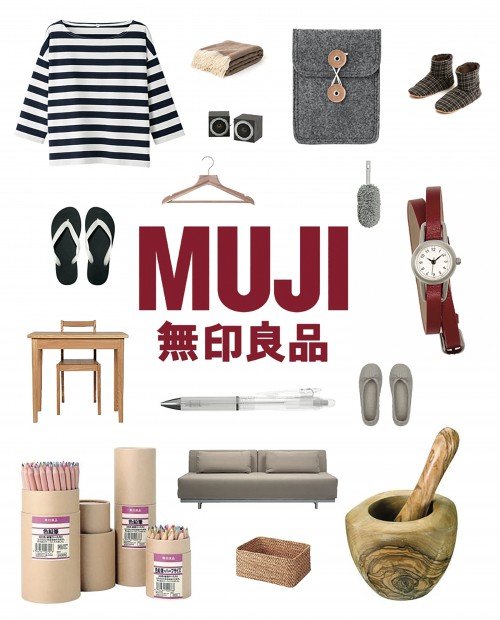3 Reasons Why No-Brand Brand Muji Succeeds in Malaysia
________________________________________________________________________________
On August 18th - In Blog, News, Retail
Muji opened its first shop in Malaysia in 2012, the first of what was to become four stores in the country.
The brand’s original ethos of functionality without waste has morphed into a stance against labels and being labeled. This has struck a chord among the label-weary in Malaysia.
“It was like getting detoxified from all the tacky, super-ornate and ostentatious products in other shops,” said one graphic designer fan when the store opened at Pavilion Kuala Lumpur.

Muji outlet in Pavilion. Photo via the Malaysian Insider.
What makes Muji a winner other than thumbing its nose at the branded establishment? From our past consumer research, three specific insights are relevant to Muji’s success in Malaysia – and all are relevant to international brands looking to break into the competitive Malaysian market.
Value for money
“In general, the whole ideology of consumption in Malaysia is inclined towards pragmatism and quality consciousness,” says a research paper published by Jurnal Kemanusiaan.
Muji understands this implicitly. Its tagline, “Lower priced for a reason”, resonates well with Malaysians whose purchase habits are driven by a strong streak of practicality. Muji’s brand promise of paying only for quality, not the packaging, is a message that plays well in this market.
Japanese pedigree
It’s no surprise that Asians look up to Japan. A 2014 Pew study shows that seven of 10 Asian countries surveyed have a favorable opinion of Japan; of the Malaysian respondents, 75% view Japan positively.
In a day and age when made-in-China is denigrated, Japanese made goods are still seen as desirable. Not all of Muji’s products are made in Japan; a good chunk of its merchandise is made in China. The brand has emphasized in the past that all China-made goods are subject to the same quality control and standards that govern its Japanese-made products.
Whether products are actually made in Japan or in China does not seem to deter the flood of shoppers who happily pick up a basket and fill it with all things Muji. In their eyes the brand remains Japanese to the core. It helps that the store’s visual merchandising in its retail spaces is clearly Japanese, that products have a Japanese design vernacular, and that all items come with Japanese labels.
Strong brand identity
This may sound paradoxical given that Muji has positioned itself as the no-brand brand. The absence of logos, the bareness of its packaging and the consistent use of a brown, grey and burgundy colour palette are key identifiers of the Muji brand.

The Muji look has been faithfully applied to all its merchandise, from stationery to furniture, making them as distinguishable as Apple products. Store layout and product displays are also very Muji, emphasizing calm, serenity and uniformity. The strength of Muji’s brand is that even without logos, a product still very clearly communicates that it’s Muji.
Implications for brands looking to break into Malaysia
Not all companies can tick the boxes the way Muji did, but they can certainly take their cue from what the Japanese brand did:
Study the market before taking the plunge. Muji opened in Singapore in 2009 but it took three years of surveying the Malaysian market before the brand was ready to come to Kuala Lumpur. All that preparation and study has helped.
Have a strong sense of identity. The Asian culture as a whole is respectful of heritage. Muji is rooted in its Japanese-ness, which is evident in every touch point. Brands looking to enter Malaysia must have a similarly strong sense of self and the value it brings to local consumers.
Appeal to value for money. Malaysian consumers take pride in extracting maximum value for the money they spend. Emphasizing quality and value rationalizes purchase decisions, especially for higher-ticket items.
________________________________________________________________________________
Tags: branding, consumer market research, consumer research, Malaysia market research, market research, Muji, retail market research
Copyright © All Rights Reserved